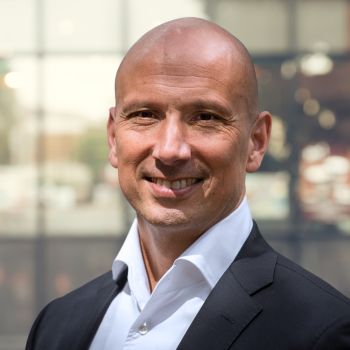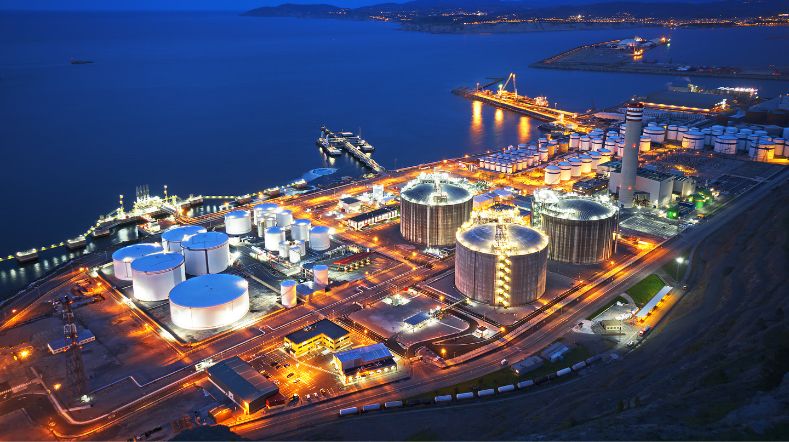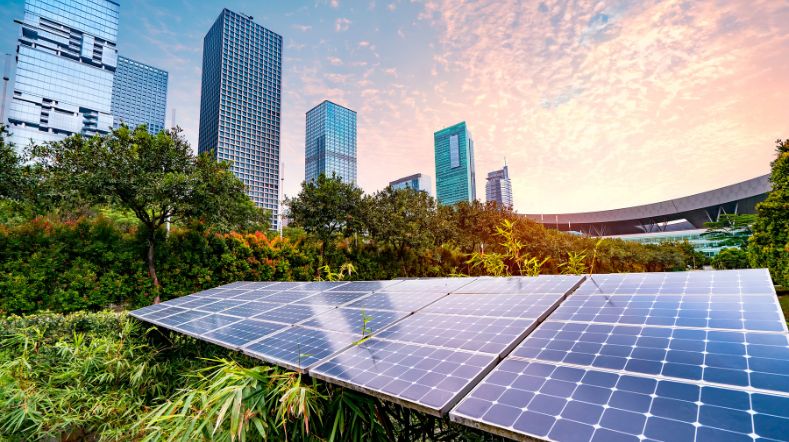
TNO Strategic Plan 2026–2029: Focus, scale and impact
TNO will be more actively supporting Dutch startups and scale-ups. The goal is to create new global players. This will not only strengthen the economy but also the geopolitical position of the Netherlands and Europe. This ambition is outlined in the new Strategic Plan for the period from 2026 to 2029. An interview with CEO Tjark Tjin-A-Tsoi.
What will this plan deliver for the Netherlands by 2029?
'Our strategy will be successful if we help multiple start-ups and scale-ups grow into major players. That way, we create new control points in international value chains, just like ASML. You need to stake a claim and gain a technological edge at critical points in global chains. That’s how you build a unique position.'
'Besides supporting new companies, our strategy also strengthens the competitiveness of existing businesses. We do this by collaborating on breakthrough innovations, reinforcing and expanding the industrial base of the Netherlands.'
'This can’t be done without contributing to evidence-based policy. We support the government on key societal priorities like sustainability and resilience, providing research and scientific insights. We also address various forms of congestion affecting our society and economy, such as the overloaded power grid and housing shortages.'
'Last but not least, TNO aims to play a key role in developing knowledge and technology that makes the Netherlands safer, more resilient, and technologically leading in areas like defence. We support the growth of a strong defence industry so that the Netherlands, within NATO, stands ready to protect and secure our freedom.'
What’s the biggest shift in this new Strategic Plan?
'We’re sharpening our focus. On areas where we are leading, have a clear right-to-play, and strong market and application potential. Also where TNO naturally has a role to fulfill. The themes from the previous strategy—health, safety, sustainability and digitalisation—remain relevant, but were too broadly defined. That made it hard to steer with precision.'
'We’ve now assessed where our maximum added value lies within each theme. We ask: are we a leading innovator here, or just one of many? Resources are limited, so we must use them as effectively as possible. That requires focus. And that applies not just to TNO, but to the Netherlands as a whole. Without focus, there’s no excellence.'

'The speed of innovation is unprecedented and decisive - those who do not choose and lead will fall behind.'
Which themes will receive more priority?
'Topics that will clearly benefit from this strategic shift include high-tech, quantum technology, semiconductors, AI, cybersecurity and defence. Also specific areas within sustainability, such as grid congestion, climate adaptation and circular carbon. And in health, themes like care innovation and medtech.'
'We’re moving away from the reflex of saying: this is an important societal issue, so we must do something. Instead, we now ask: yes, it’s important, but where can TNO truly add value? And can we make real impact there? Everything TNO does must be important, but not everything that’s important requires TNO’s involvement.'
'Take wind energy: this sector is now fully industrialised, with large professional players leading the way. In such cases, our role changes, especially in how projects are funded.'
TNO sits in the middle of the innovation chain—the valley of death. Will that continue?
'We’ll focus even more on bridging that valley of death between academia and industry. We work closely with universities and companies to advance, apply and scale research. We collaborate with start-ups, scale-ups and established firms to bring innovations to market. Innovation only succeeds if it’s scalable.'
TNO also wants to contribute to strategic autonomy. How?
'The Netherlands and Europe are heavily dependent on foreign technology and raw materials. TNO explores how to reduce that dependency, for example, by using materials available within the EU, or accessible through recycling and reuse. We look at how to reduce reliance on critical materials. Think of an electrolyser for green hydrogen that uses 200 times less iridium, or replacing silver with copper in solar cells.'
'It’s unrealistic to bring all global value chains back to Europe. But we can create new control points: technological positions so unique that the rest of the world depends on us. ASML is the prime example. In the semiconductor value chain, the world relies on their machines from Veldhoven. We need more companies like ASML in the Netherlands, and we’re actively working to make that happen.'
Defence spending is set to nearly double. Will defence become more important for TNO?
'Yes, absolutely, and that applies to TNO as a whole. The ‘whole of society’ approach also requires a ‘whole of TNO’ approach. We must help strengthen the resilience of the Netherlands. That’s not just the responsibility of Defence or our Defence & Security unit, but of society, and thus all of TNO.'
'On one hand, by adapting non-military technologies for defence use, dual use. On the other, by contributing to resilience in other domains.'

Strategic Plan 2026-2029
In this Strategic Plan 2026-2029, we first examine the most important national and international trends that affect TNO’s work. Then, we will outline what all of this means for TNO’s work and strategy.
Innovation increasingly comes from startups. How will TNO collaborate with them?
'The Netherlands has many innovative startups, but our system falters in the scale-up phase. That’s a major issue, because breakthroughs and industrial renewal often come from startups that scale quickly into new industrial champions.'
'For TNO, this means actively guiding and supporting our spin-offs, so they scale faster and more often. ‘Out of sight, out of mind’ must not apply to our spin-offs.'
'We’ll also support start-ups and scale-ups not originating from TNO. For example, by conducting research for them, offering lab access, or leveraging our network. If they can’t afford to pay us, we can take an equity stake, we’ve already done this three times this year. We’ll treat these companies just like our own spin-offs.'
'To help start-ups and scale-ups grow, we’ve partnered with Techleap and Invest-NL. Together, we offer research, coaching from Techleap, and investments from Invest-NL. Growth capital (venture capital) is increasingly vital to create successful scale-ups. TNO is used to working with governments and industry in a triple helix. But now we’re moving to a quadruple helix, with investors included.'
The Strategic Plan’s subtitle is “Pushing Boundaries”. That sounds ambitious.
'We must be ambitious. The urgency is high. In the US and China, developments in AI, quantum computing, medtech, cleantech and photonic chips are moving incredibly fast, with enormous execution power. AI data centres and high-tech factories are being built at lightning speed.'
'In the Netherlands, we often think it’s mainly about developing knowledge. That’s important, and we’re good at it. But then you must follow through. It’s ultimately about speed and execution power.'
Header image: Kiki Groot
Get inspired
New expertise centre to help companies innovate more safely and sustainably


Paper Personalised Health


Airbus and TNO demonstrate secure laser link between aircraft and satellite


Globally relevant success: Airbus and TNO achieve new heights in optical communication


A fossil-free 2050 is technically achievable


